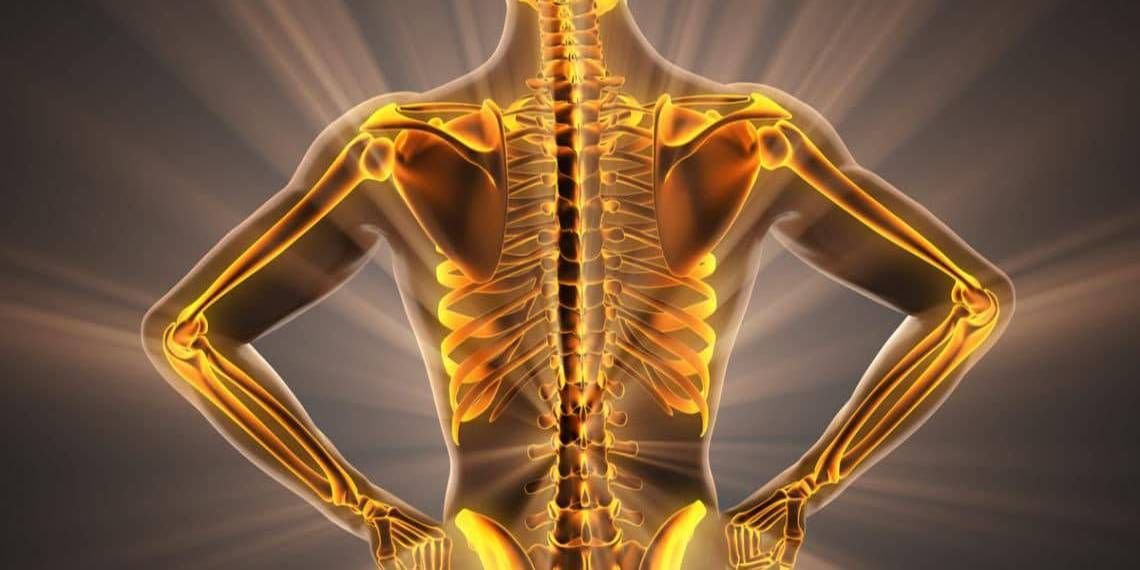
Bone Pain Beyond Calcium: The Role of Vitamin D, B12, and K2

Bone Pain Beyond Calcium: The Role of Vitamin D, B12, and K2
When people experience persistent bone pain or weakness, the first solution they often reach for is a calcium supplement. After all, calcium has long been associated with strong bones and healthy teeth. But what many don’t realize is that calcium is only one piece of the puzzle. Bone health is a delicate balance of multiple nutrients, hormones, and cellular processes.
At Midas Wellness Hub, Dr. Shibani Staney often reminds patients that relying on calcium alone can sometimes do more harm than good. Without the right supporting vitamins, calcium may not even reach the bones where it’s needed most. Instead, it could accumulate in the wrong places, leading to other health concerns.
In this blog, we’ll explore why bone pain is not always just about calcium, and how deficiencies in Vitamin D, Vitamin B12, and Vitamin K2 can silently contribute to poor bone health.
Understanding Bone Pain: More Than Just Weak Bones

Bone pain can feel dull, deep, or achy. It is different from muscle pain and is often associated with conditions like:
- Osteoporosis – thinning of bones due to mineral loss.
- Osteomalacia – softening of bones due to vitamin D deficiency.
- Vitamin B12 deficiency neuropathy – nerve-related bone and joint discomfort.
- Arthritis and inflammation – pain in joints and bones.
While calcium deficiency can cause brittle bones, in many cases, hidden vitamin deficiencies are the real culprits.
Vitamin D: The Sunshine Vitamin That Guides Calcium

Calcium may be the building block, but Vitamin D is the key that unlocks the door. Without Vitamin D, your body cannot properly absorb calcium from the food you eat or the supplements you take.
How Vitamin D Deficiency Causes Bone Pain:
- Leads to osteomalacia in adults, making bones soft and painful.
- Causes fatigue and muscle weakness, worsening discomfort.
- Contributes to frequent fractures due to poor calcium absorption.
Signs of Vitamin D Deficiency:
- Achy bones, especially in the lower back and legs.
- Muscle cramps or weakness.
- Frequent illnesses due to a weaker immune system.
Dr. Shibani emphasizes the importance of checking Vitamin D levels before prescribing calcium supplements. Many patients who complain of bone pain are often found to have severely low Vitamin D rather than a calcium problem.
Vitamin B12: The Overlooked Nutrient for Nerves and Bones

When we think of Vitamin B12, we usually associate it with energy, red blood cells, and brain health. But its role in bone health is often overlooked.
Why B12 Matters for Bones:
- B12 is essential for the formation of red blood cells, which transport oxygen to bones and muscles.
- It helps regulate homocysteine levels; high homocysteine is linked to osteoporosis and fractures.
- B12 deficiency can cause nerve pain that feels like bone or joint pain.
Signs of Vitamin B12 Deficiency:
- Tingling or numbness in hands and feet.
- Weakness and fatigue.
- Poor balance or frequent falls.
- Bone and joint pain that doesn’t improve with calcium.
At Midas Wellness Hub, patients with unexplained bone discomfort are often tested for Vitamin B12. Surprisingly, many individuals who are vegetarian or vegan in India are at higher risk of B12 deficiency, since natural sources are mainly animal-based.
Vitamin K2: The Missing Link Between Calcium and Bones

One of the least talked about but most crucial vitamins for bone health is Vitamin K2. It works hand-in-hand with Vitamin D and calcium to ensure bones remain strong.
The Role of Vitamin K2:
- Activates osteocalcin, a protein that binds calcium to bones.
- Prevents calcium from depositing in the wrong places, like arteries and kidneys.
- Reduces the risk of osteoporosis and fractures.
What Happens Without Vitamin K2?
Even if you consume enough calcium and Vitamin D, without Vitamin K2, calcium may harden arteries instead of strengthening bones. This is why Dr. Shibani recommends a balanced approach: calcium, Vitamin D, and Vitamin K2 supplementation together, when clinically indicated.
Why Calcium Alone May Not Work
Taking calcium without addressing these vitamin deficiencies can be like building a house with bricks but no cement or mortar. The structure won’t hold.
Calcium without Vitamin D → Poor absorption.
Calcium without Vitamin K2 → Risk of calcification in arteries.
Calcium without B12 → Weak bones due to poor cell function and nerve pain.
This is why functional medicine, as practiced at Midas Wellness Hub, focuses on the root cause of bone pain, not just the symptoms.
Functional Medicine Approach: Testing Before Treating
Instead of prescribing calcium blindly, a functional medicine approach includes:
1. Vitamin D blood test – to check deficiency levels.
2. Vitamin B12 test – especially for vegetarians, vegans, and older adults.
3. Bone mineral density scan (DEXA) – to assess bone strength.
4. Lifestyle assessment – sun exposure, diet, stress, and activity levels.
Only after identifying the root cause can the right supplementation or treatment be prescribed.
Natural Sources of Essential Vitamins for Bone Health
Vitamin D
- Sunlight exposure (15–20 minutes daily).
- Fatty fish (salmon, mackerel).
- Fortified dairy and plant milk.
Vitamin B12
- Eggs, dairy, fish, chicken, red meat.
- Supplements for vegetarians and vegans.
Vitamin K2
- Fermented foods (natto, sauerkraut).
- Cheese, egg yolks, and grass-fed butter.
Calcium (still important, but not alone)
Dairy products, leafy greens, sesame seeds, almonds.
Lifestyle Habits That Support Strong Bones
Along with vitamins and minerals, lifestyle plays a huge role in bone health:
- Regular weight-bearing exercises like walking, yoga, or strength training.
- Adequate sleep to allow bone repair.
- Avoiding smoking and excess alcohol, which weaken bones.
- Stress management, since chronic stress can deplete essential nutrients.
Dr. Shibani’s Perspective
At Midas Wellness Hub, Dr. Shibani has seen numerous patients who struggled with bone pain for years despite taking calcium supplements. The breakthrough often comes when their Vitamin D, B12, and K2 deficiencies are identified and corrected.
She emphasizes:
“Bone pain is never just about calcium. Strong bones require a synergy of nutrients. By understanding the body as a whole, we can treat the root cause rather than just masking symptoms.”
Conclusion
Bone pain is a signal from your body that something deeper may be missing. While calcium is important, it is far from the complete solution. Vitamin D, Vitamin B12, and Vitamin K2 play equally critical roles in keeping bones strong and pain-free.
Instead of self-prescribing calcium, it’s essential to get the right medical evaluation, check for deficiencies, and adopt a holistic approach to bone health.
At Midas Wellness Hub, under the guidance of Dr. Shibani Staney, patients are encouraged to look beyond quick fixes and understand the true foundation of health.
Because when it comes to bones, balance is stronger than excess.
